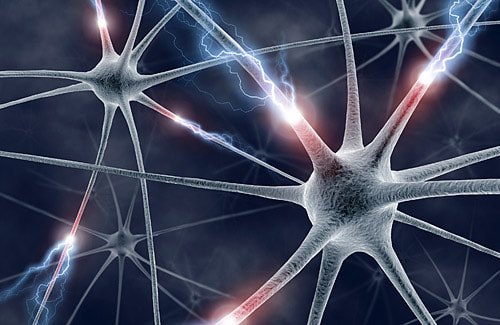|
During the 1950’s, psychologists found that “seven” is the magic memory number. In studies where the test subject is given a list of items to memorize, seven is usually the maximum number of items that is memorized. How do we explain this phenomenon?
When we are given something to memorize, whether it’s a grocery list, a phone number, or a sentence, neurons in our brain receive a signal and transmits the signal to other neurons. The triggered cluster of neurons must suppress other clusters in order to reproduce the memorization correctly. As the list becomes longer, the number of the clusters that must be suppressed increases exponentially. As a result, The list becomes harder to memorize as the length of the list increases. Recently, scientists Mikhail Rabinovich and Christian Bick developed a mathematical model to describe such an exponential growth. Before you start testing out the theory and even training your brain to beat the magic number, you should know that some people have already done so. Some people with autism can memorize up to a hundred random numbers in one read-through because of strong pathways in their brains that can fully suppress the clusters of neurons. http://www.skeptic.com/eskeptic/07-11-20images/neurons-firing.jpg http://www.physorg.com/news178220995.html CR
0 Comments
Has your dog really ever eaten your homework? Most likely not. But a new study to be published this month in the Journal of Experimental Social Psychology claims that you aren’t a hundred percent to be faulted.
Nathanael J. Fast at the USC Marshall School of Business and Larissa Tiedens at Stanford claim that publicly blaming others is “socially contagious.” In other words, blame induces more blame because we feel a need to protect our self-image when criticized. In addition, though blaming others may feel good temporarily, Fast alleges, in the long run a great number of organizations and society in general could lose their incentive to learn through trial and error or back ideas far from the norm. Interestingly enough, leaders who’ve been shown to harbor a tendency to blame others exhibit narcissism and insecurity as well. Clearly, that’s not the best reputation to be had. So, the next time you’re tempted to blame your innocent dog for your missing paper, be honest and ‘fess up. It’s for the good of society. GTB ABC News reports on 16 year old Brooke Greenberg. Like other kids her age, she knows what she does and doesn’t like and loves to shop. On the other hand, Brooke is very unique in that she’s the size of and infant and has the mental capacity of a toddler. Brooke weighs 16lbs and is 30 inches tall. According to Dr. Richard Walker of South Florida School of Medicine, Brooke’s body isn’t coordinated in its development. As of today, there hasn’t been a specific genetic mutation ascribed to the teenager’s condition. Brooke has survived many medical complications, including multiple stomach perforations and brain seizures. Even though doctors have prescribed her multiple growth hormones to aid her growth, according to her mom, Brooke “didn’t put on a pound, an ounce; she didn’t grow an inch.” Her family members center their lives around this special little girl and are happy that Brooke’s condition can lead to progress in science.
LRS |
Categories
All
Archives
April 2024
|



